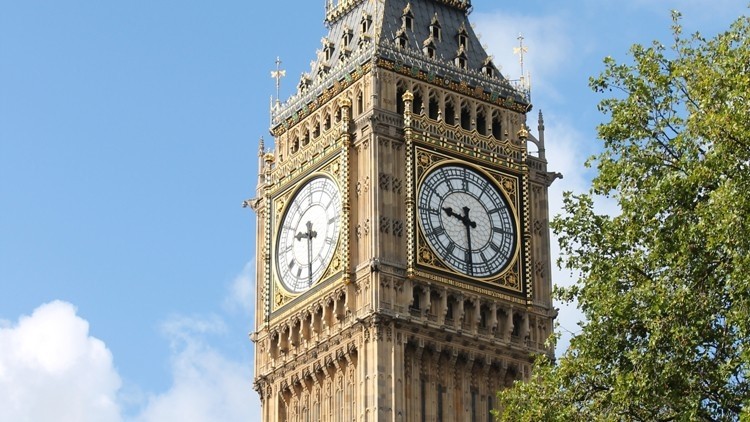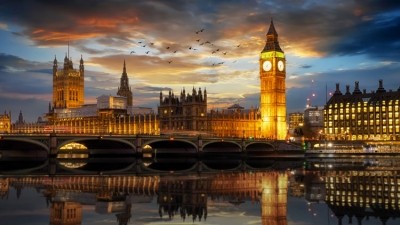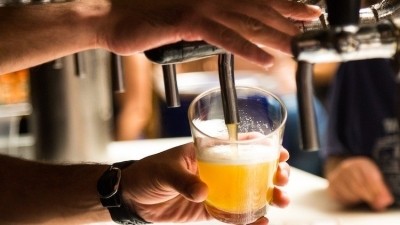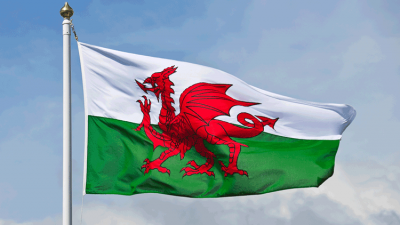Chancellor commits to business rates and energy support but hospitality remains fearful for the future

Hospitality trade bodies have welcomed the announcements, but general reaction across the sector to the statement - which also included confirmation that VAT will be frozen at 20% until 2026, despite intense lobbying from the industry for it to be reduced - has been lukewarm at best, with a lack of targeted support leaving many operators fearful for the future.
UKHospitality has accused the Chancellor of failing to provide any plan for economic growth, while the British Beer and Pub Association (BBPA) has warned that more support is needed to mitigate the impact of rising costs.
Elsewhere, Sacha Lord, the night time economy adviser for Greater Manchester, has cautioned that the squeeze on operators could see venues closing at a faster rate than seen during the pandemic.
“It is a very sad state of affairs and there will be many extremely worried business owners in the UK tonight,” he says.
Jeremy Hunt sets out his vision
Speaking in the House of Commons this lunchtime (17 November), the Chancellor warned of difficult times to come, with GDP forecast to contract by 1.4% next year and inflation to remain above 7%.
A budget in all but name, he announced tens of billions in tax rises and spending cuts, blaming the economic crisis on global factors including the ongoing war in Ukraine.
“There is a global energy crisis, a global inflation crisis and a global economic crisis,” Hunt said.
“ But today with this plan for stability, growth and public services, we will face into the storm. We do so today with British resilience and British compassion. Because of the difficult decisions we take in our plan, we strengthen our public finances, bring down inflation and protect jobs.”
As part of his Autumn Statement, the Chancellor confirmed the Government will go ahead with a revaluation of properties for business rates, but will provide a £13.6bn package of support for firms 'to soften the blow'.
The multiplier will be frozen in 2023-24, while relief for 230,000 businesses in retail, hospitality and leisure sectors is set to be increased from 50% to 75%, up to £110,000 per business.
Additionally, the Chancellor announced a £1.6bn Transitional Relief scheme to help businesses adjust to the revaluation of their properties and cap bill increases for those who will see higher bills.
The Government claims this will limit bill increases for the smallest properties to 5%. Businesses seeing lower bills as a result of the revaluation will benefit from that decrease in full straight away, as the Chancellor abolished downwards transitional reliefs caps.
Small businesses who lose eligibility for either Small Business or Rural Rate Relief as a result of the new property revaluations will see their bill increases capped at £50 a month through a new separate scheme worth over £500m.
Elsewhere, the Chancellor announced that energy support will continue post-April for the most vulnerable sectors, of which hospitality has already been recognised. However, further details on what shape that relief will take is yet to be published.
He also confirmed reports that the National Living Wage will be increased by 9.7% from £9.50 to £10.42 an hour, giving a full-time worker a pay rise of over £1,600 a year. The National Minimum Wage will also see a rise.
'No plan for economic growth'
Reacting to the Autumn Statement, Kate Nicholls, chief executive of UKHospitality, notes that Britain’s hospitality businesses are already in the midst of severe economic turmoil.
“Survival this winter is the priority for venues across the country and there is the very real possibility that a significant proportion of our sector will not survive,” she says. “It was crucial that the Government addressed this today.
“I’m pleased that the Chancellor has listened to the vast majority of UKHospitality’s proposals on business rates, covering a freeze in the multiplier, extended reliefs and no downward transition. This means those seeing their valuations decrease will see the benefit in their bills immediately, at the same time as increases are capped.”
Describing the current system as outdated and not fit-for-purpose, Nicholls continues that it is essential the Government stick to its manifesto commitment of a root and branch review of the business rates system; words echoed by Emma McClarkin, chief executive of the BBPA.
“It is right the Chancellor has acknowledged of the need for changes to our business rates system and we welcome the extended and increased relief to 75% for pubs, so they do not continue to be penalised through unfair taxation,” says McClarkin.
“Urgent root and branch reform is still needed make business rates fit for the 21st century.”
Nicholls adds that what's now needed urgently is a plan for economic growth with details on how business will be at the centre of that.
“What we failed to hear today from the Chancellor was any plan for economic growth, despite him recognising its importance,” she says.
“Businesses create jobs, deliver higher wages and contribute millions in tax revenues but without a serious plan from the Government, margins continue to be squeezed without a path forward to growth.”
Frustration as calls to lower alcohol duty and VAT ignored
Two key areas that hospitality operators had hoped to hear about in the Autumn Statement was alcohol duty and VAT relief, and in both instances they were left disappointed.
Hunt had already confirmed that the previous Government's planned freeze on alcohol duty would be scrapped and made no mention of it today. Meanwhile, the sector's calls for a targeted cut on VAT fell on deaf ears, with the Chancellor confirming it would remain at 20%.
“The failure to provide any further relief for our industry today will hit pubs, breweries and their customers extremely hard this winter, and will have a devastating, lasting impact on communities across the country,” says McClarkin.
“Without lower beer duty or detail on whether energy costs will dramatically increase early next year, pub and brewers will still be forced to continue to make incredibly difficult decisions. The last thing they want to do is increase costs for their customers; they want to remain a place of solace, warmth and community, especially now, when the country needs them most.
“The Chancellor says we need to weather the storm together, but pubs and brewers are still facing a hurricane of costs leaving nothing but destruction in its wake. Their costs up 22% on average from last year, we are now losing 50 pubs a month for good. With the entire country being plunged further into a cost-of-living crisis that shows no signs of let up, there is nowhere for these businesses left to go.”
Lord adds that landlords and restaurant owners will be deeply concerned by today’s Autumn Statement.
“With these announcements, we will inevitably see a notable downturn in consumer spending over the coming weeks and months, at a time when operators need the most support as they recover from the hangover of pandemic-related debt,” he says.
“Disposable income underpins our UK economy and I’m hugely concerned that the policies outlined today will create a severe contraction in the sector. Spending on luxuries such as dining out is naturally the first to go in times of cutbacks and the hospitality sector is wide open to be the first to suffer.”





















